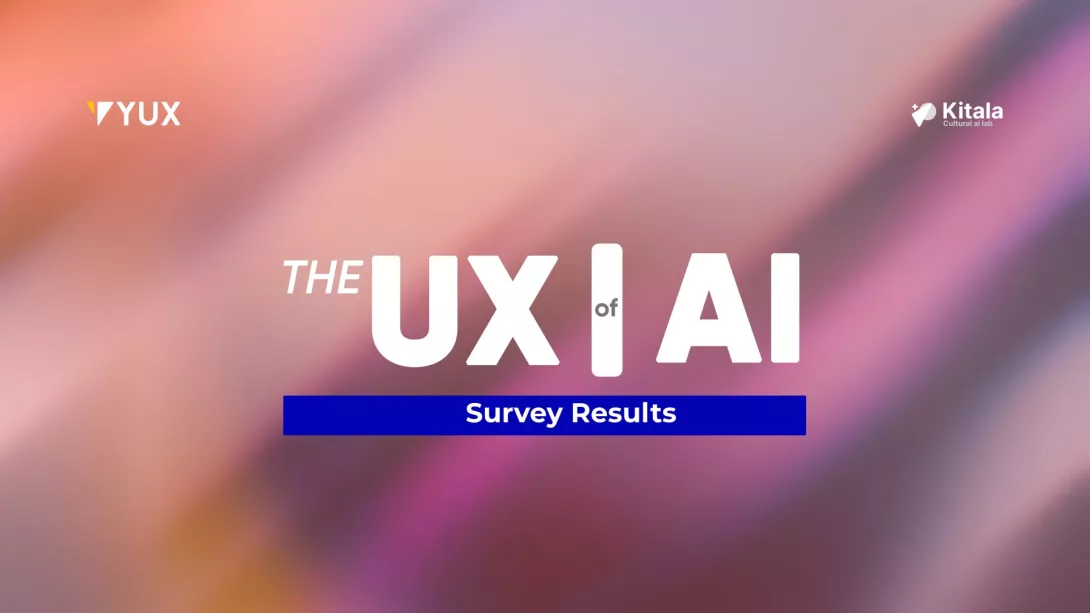
Authors: Elizabeth Akpan and Cumi Oyemike
In June, we set out to understand how people across 4 African countries (Kenya, Nigeria, Ghana and Senegal) use AI. The goal of the survey was to have a good sense of the state of conversational AI products —prevalent use cases, trust, satisfaction, challenges, and general opinions people have.
Thanks to LOOKA’s efforts in pushing the survey, we are excited to share our initial insights.
Who did we survey?
We received a total of 411 responses (282 from Kenya and 129 from Nigeria). We got way more responses from Kenya, but in the process of cleaning the data, we applied some checks to trim out multiple responses from an individual. We did this because the survey responses were incentivised, and some people chose to respond numerous times as a result. The survey distribution approach was via social media Ads. We had trouble running Ads in Ghana, and our campaigns in Senegal yielded responses too negligible to compare with other countries. As a result, this survey only captures insights from Nigeria and Kenya. In future, we will explore different approaches to data collection that give us a decent chance at receiving online responses from more countries.
Half of the responses we received were from people aged 18-24 years. It is important to note that in the online Ads for data collection, we targeted people who used AI.
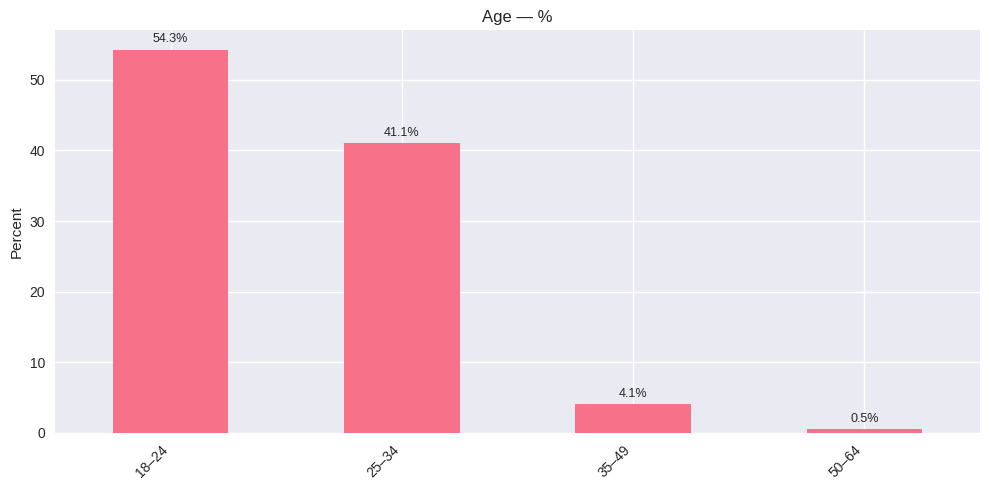
Of the 79% who use AI daily, approximately 2 in 5 people use it 1-3 times a day.
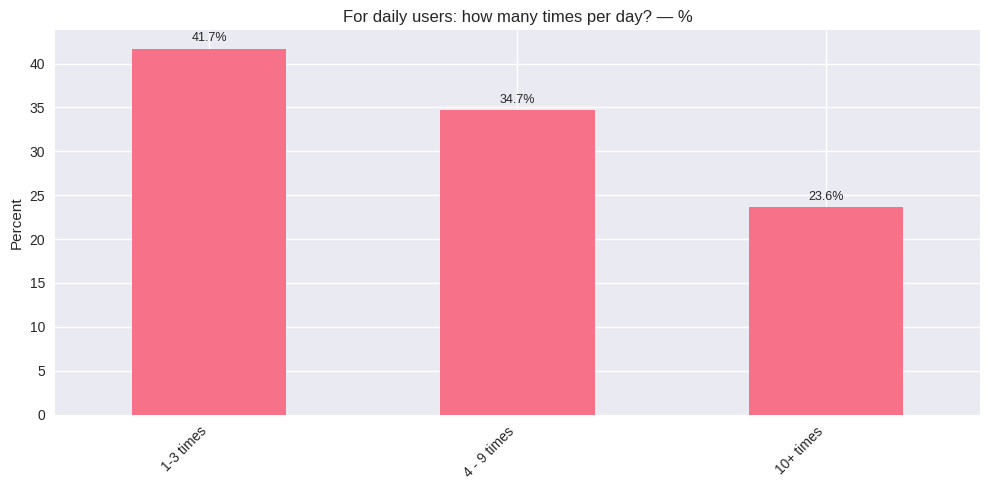
We didn’t have a question on gender in the survey and didn’t realise this until much later. So, we cannot make a comparison on use across genders.
What products are people using?
We had a multi-select question asking people, “Which AI tools do you use?” It isn’t surprising that ChatGPT takes the lead here, as they were one of the first products in the market. However, we found it interesting that Meta AI (on WhatsApp, Instagram and Facebook) is the second most-used AI tool.
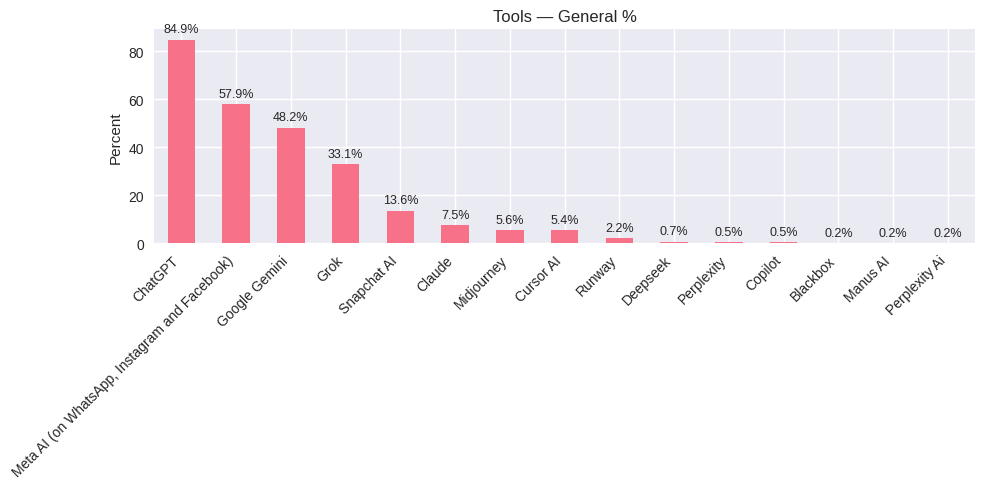
Taking a more country-specific view of the use of AI tools, we observed that people in Kenya are twice as likely to use Grok as people in Nigeria. Kenya also has more (relative to the total number of responses from the country) people using Google Gemini. Nigeria, on the other hand, has more people (relative to the total number of responses from the country) using ChatGPT, Meta AI and Snapchat AI.
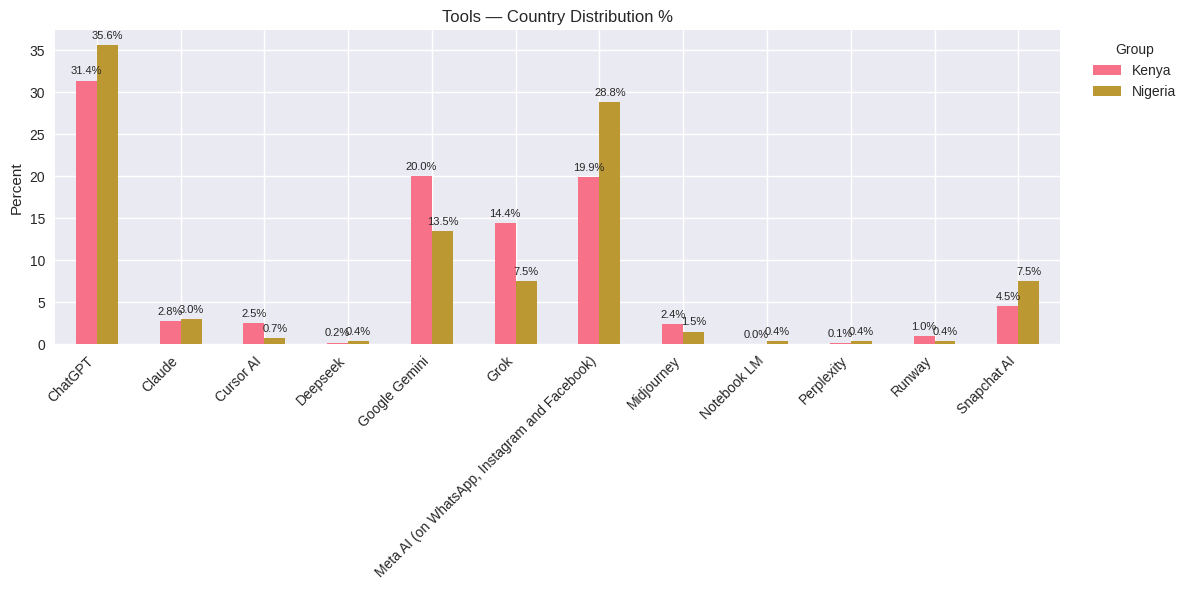
Only 27.5% of the people we survey have paid for an AI product.
What is the preferred communication style with AI?
Half of the respondents take an “as the context demands” approach to communicating with AI products. There were no notable differences in the approach to communication with AI in these two countries.
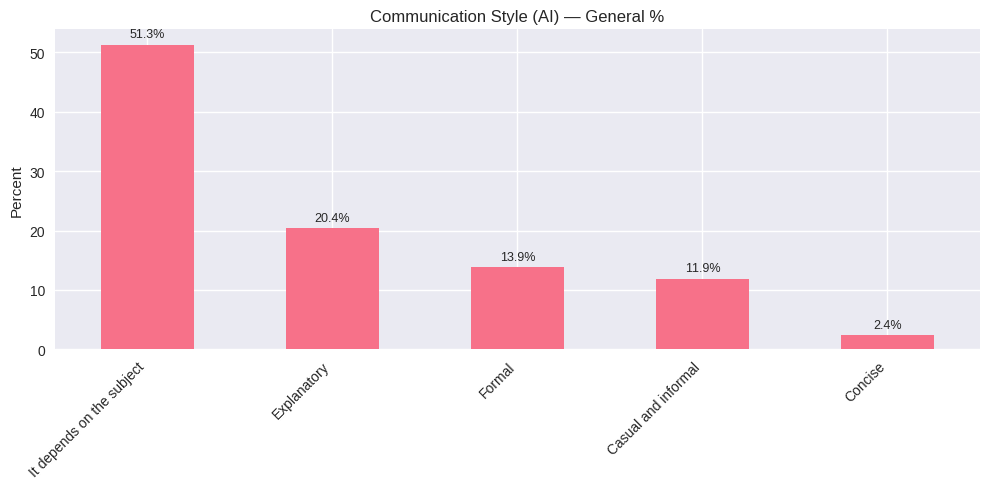
![]()
95.6% of the respondents preferred the format of communication to be text/chat. We had a follow-up question to see if this differed in how they chat with people digitally, and there isn’t a lot of difference — 88% prefer text.
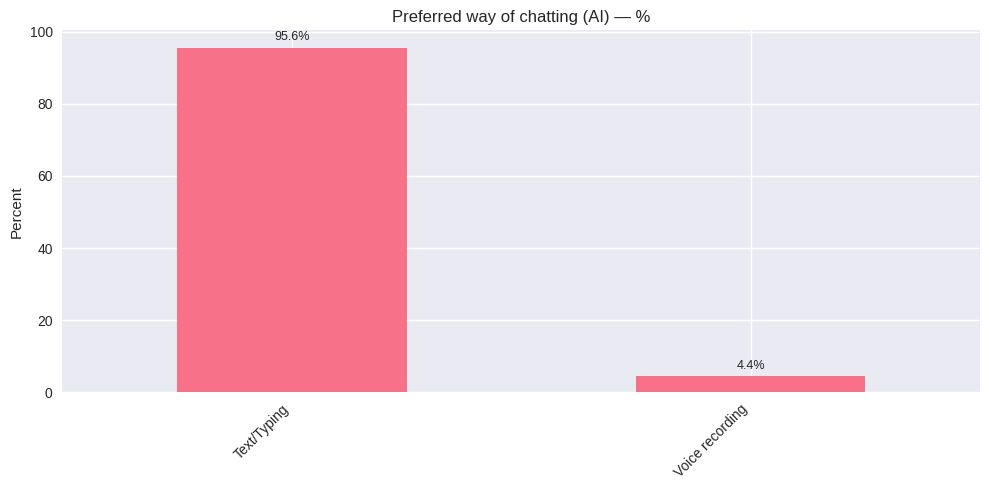
How well do people trust AI?
Across all use cases we explored, at least 90% of people either somewhat or completely trust AI for personal, business, learning and educational, technical assistance and troubleshooting, and research and decision-making needs.
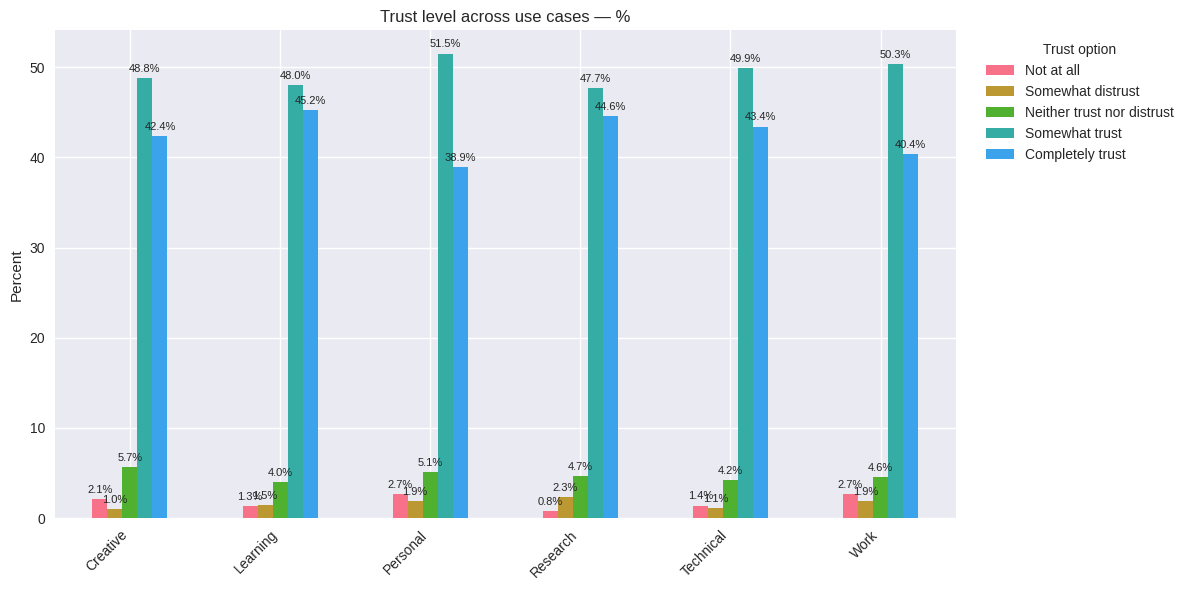
At least 50% of people who trusted AI for these different use cases did so due to the following reasons: clarity of responses, contextual relevance of responses, information accuracy and AI suggesting an alternative approach to a task or problem.
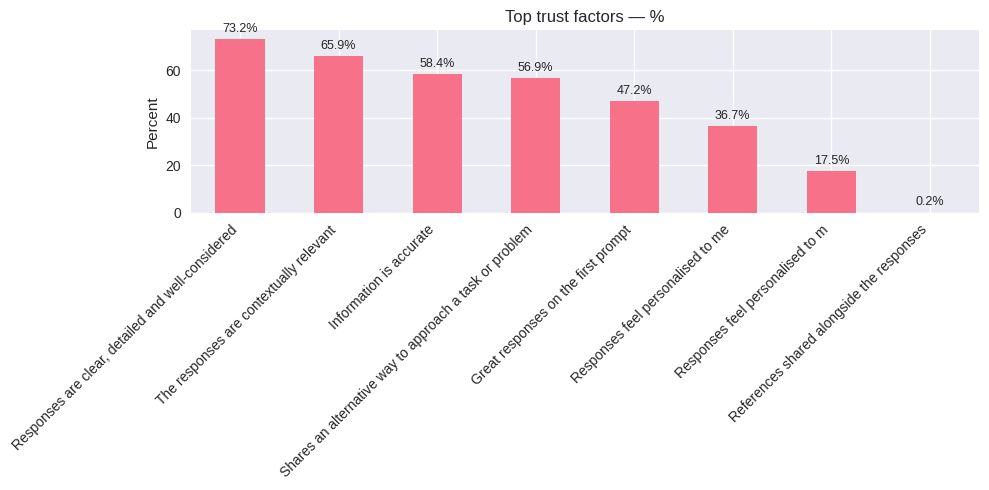
When in doubt about the responses they get from AI, 64.5% of people turn to Google for answers. This is interesting because the first response on Google to a search query is typically an AI Overview, and that has been the case since October 2024. While our survey can’t answer why turning to Google is more prevalent, this will make for an interesting study. Additionally, it is also interesting that Academic sources such as Google Scholar and journals are the second most prevalent fallback option to AI tools — 24.1% of people selected this response. Our theory is that AI tools aren’t satisfactory for people in these countries doing deep research. Considering that only 27.5% of people pay for AI tools, many people may be using AI tools with limited capabilities. It is important to note that this was a multi-select question and people could choose more than one option.
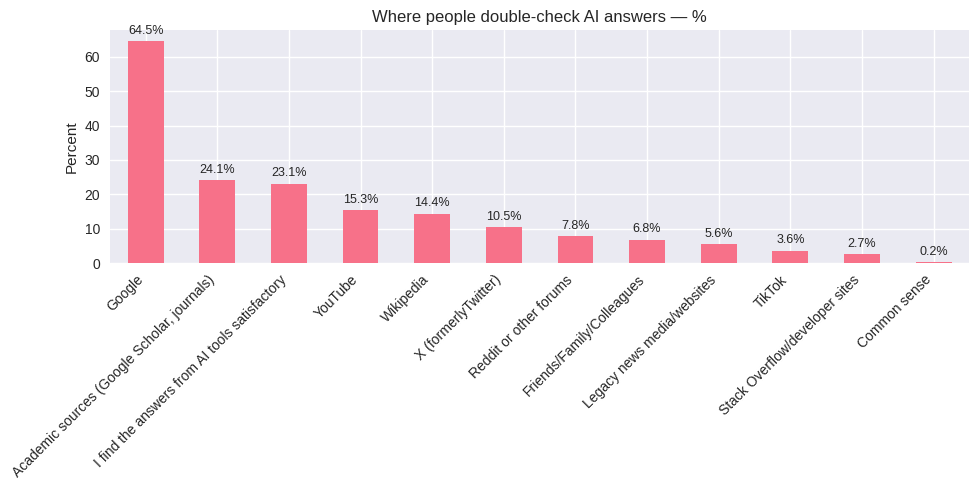
What challenges do people have with AI?
Taking a closer look (country-view) at the top 10 challenges people have with using AI, the top challenges across both countries are: misunderstands accents/languages and needing a stronger internet connection. The challenge of AI misunderstanding accents/languages is more prevalent in Nigeria than in Kenya, and looking back at the preference for text over voice chat with AI, we wonder how much of a role this plays. Interestingly, the challenges of AI lacking cultural awareness, taking too long to load answers and struggling with prompting are more prevalent in Kenya. Naturally, our initial theory on why AI lacking cultural awareness is a more pronounced problem in Kenya than in Nigeria is ascribing it to the difference in these countries' population and the disparity in the volume of user-generated content freely available on the internet these models train on.
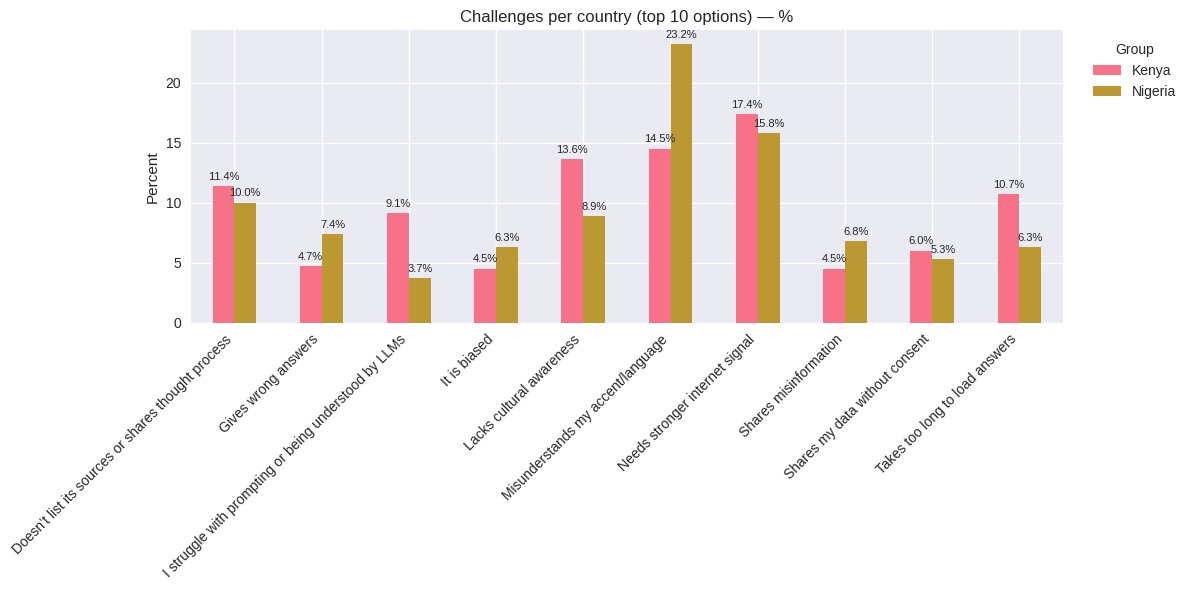
We’re working on sharing a final report that’s more exhaustive and zooms in on the specific ways people use AI. In the meantime, we’d like to hear any thoughts or cross-analysis you may want us to explore.
